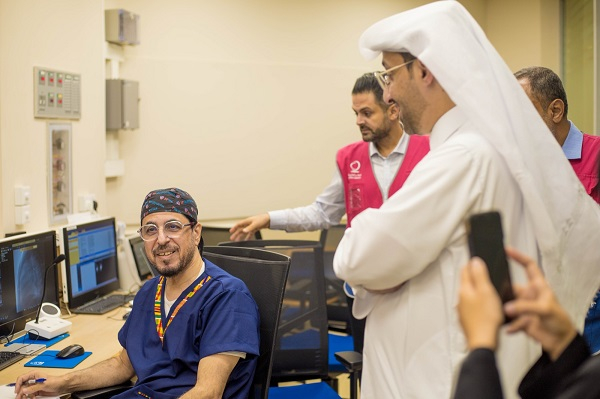
The health of Qatar’s children has been in the spotlight this week, on the heels of an international pediatric conference being held here. In a three-part series, Doha News examines some of the most pressing challenges facing kids in Qatar. Here, we look at the growing issue of child abuse.
Qatar’s current approach to dealing with child abuse “doesn’t work,” largely because authorities here do not have the power to investigate cases of suspected maltreatment, a local expert has said.
While the Qatar Foundation for Women and Children can intervene in “egregious” cases, they typically require the consent of the family to follow up on suspicions of maltreatment, said Marcellina Mian, a professor of pediatrics at the Weill Cornell Medical College in Qatar.
If the family refuses to co-operate, nothing further happens, she explained.
“Unfortunately, with child abuse, sometimes you just get a hint of something,” she told Doha News on the sidelines of this month’s Excellence in Pediatrics conference.
“If a family doesn’t allow you in, then you don’t get to see what the problem is. Sometimes if you go in, you discover that it was … nothing to worry about. But one needs to have the right to do that because people naturally don’t like to have strangers coming in and poking in their business.”
Scope of the problem
A recent report found that one in five children in Qatar is subject to some form of abuse, although local health experts have previously said that official figures likely understate the actual number of incidents.
Mian said child abuse is underreported across the world, and there is no evidence suggesting youth maltreatment is more or less prevalent in Qatar than in other countries. She also emphasized that parents in Qatar love and care for their children just as much as their counterparts in the West.
There are, however, cultural differences that may be holding back the evolution of laws to protect children, Mian said.
As a more collective society, the Middle East puts an emphasis on the well-being of the family and community over the individual. Suspected cases of child maltreatment may go unreported out of fear of damaging the family’s honor, she said.
Mian added that this may be part of the reason that Qatar has no laws that specifically deal with child abuse – although policymakers are said to be working on domestic violence legislation.
Mian said the absence of such provisions means that child abuse is effectively treated as any other crime, meaning the legal system expects the victim or his/her guardian to report the offense.
To illustrate the problem, she asked the audience during her half-hour lecture to imagine how seriously a police officer would take them if they called to report that their friend’s car had been stolen.
“Child abuse is different and needs to have different laws,” she said, adding the current approach “doesn’t work.”
“The victim is a child, so the child can’t report (it), and because its guardians are the persons who are (often) the offenders, they have no interest in reporting it.”
Solutions
Along with updating the country’s laws, Mian said that there are steps that social and health institutions can take to reducing the prevalence of child abuse.
That includes providing ongoing professional support for parents, both before and after a child enters the family.
For example, most Qatar residents tend to visit emergency health centers – where they see a different doctor each time – rather than a family physician or pediatrician who sees a child on a regular basis.
This means that there is no one to offer ongoing “anticipatory guidance” on topics such as what parents can do if their child has disciplinary issues or isn’t eating and sleeping properly.
“You don’t get those things on one-time visit to an emergency center,” Mian said. “The lack of consistent primary care physicians, having a medical home, is problematic.”
Another local pediatric expert said he’d also like to see more ongoing care, particularly for children who show signs of abuse.
Khalid A. Al Yafei, a senior consultant in pediatric emergency at Hamad Medical Corp. who attended Mian’s presentation, said he doesn’t know what happens to a child at home after they are discharged from his care.
Along with visits from Qatar Foundation authorities, Al Yafei said he wants to see those children back in his clinic on a regular basis to make sure they don’t show any other signs of abuse.
He’d also like to see more people suspected cases of child maltreatment, even if they prove to be unfounded.
“If you discover at the end that it wasn’t child abuse, that’s fine. But if you miss one case, it’s a big problem.”







